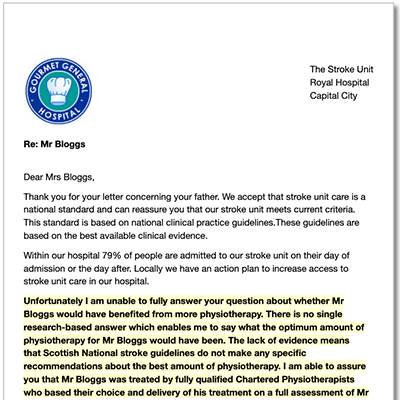Introduction
On completion of this module you should have a critical understanding of how clinical research and service improvements are used to provide high quality stroke care.
The answers to all the test questions are contained within the module. This information may be provided in the ‘Additional Information’ boxes and topic loops on some of the pages.
Topic Loops
Recurring topics in this subject are listed below as topic loops. These are short tutorials explaining key concepts. When working through the cases links to these topic loops will appear underneath the main content of the page.
- Clinical audit
- Clinical standards
- Evidence
- Evidence based guidelines
- Improving patient care
- Research

Module Authors
Module lead Prof Peter Langhorne, Professor of Stroke Care, University of Glasgow Group members Katrina McCormick, eLearning & Health Information...

Case 1: Brenda: Reducing her risk of DVT
Brenda Brenda is 66 years old and is married with three young grandchildren. She was previously well except for having...

Case 2: Stroke Unit
Complaint letter You are the nurse manager who receives a complaint: ...

Case 3: Dr Porter and Charge Nurse Cameron (Aspirin)
Dr Porter and Charge Nurse Cameron work in the stroke unit of the hospital and receive monthly reports from the...

Case 4: Thomas (Swallow screen)
Thomas is a 43 year old builder who self presented at the A&E department of his local hospital. He arrived...

Conclusion
Having completed this module the learner should now know about: Clinical research Asking and answering questions to improve stroke care...

Module test
...
Page last reviewed: 16 Sep 2020


